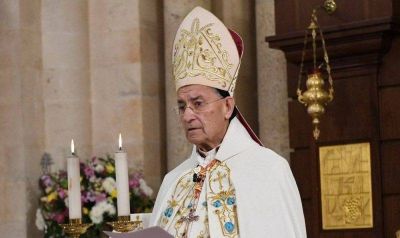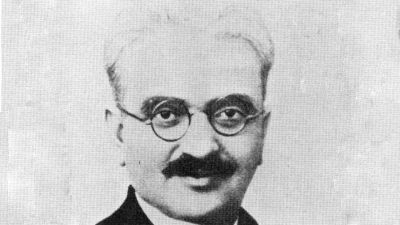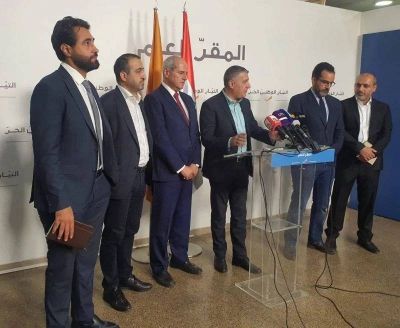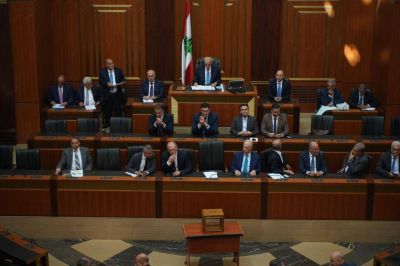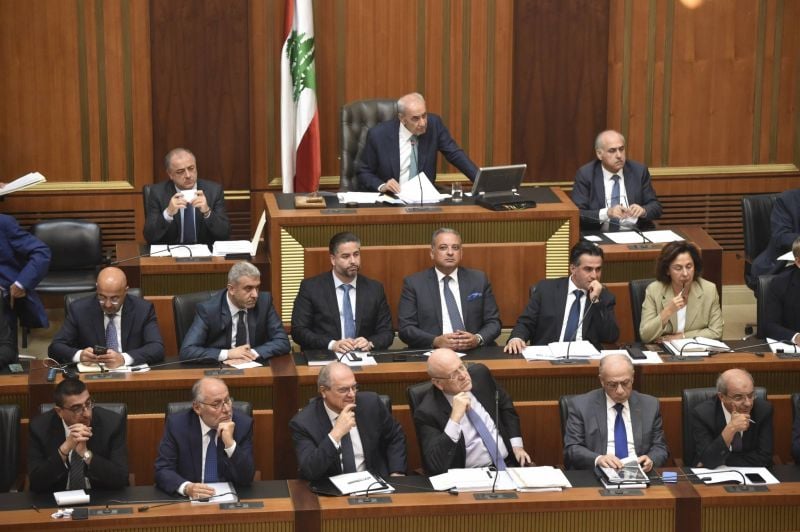
A meeting of the Lebanese Parliament on Sept. 26, 2022 in Beirut. (Credit: Ali Fawaz/Lebanese Parliament Flickr)
Parliament Speaker Nabih Berri took everyone by surprise on Tuesday by calling MPs to a first session to elect a new president, set to take place Thursday, September 29, almost a month after the beginning of the timeframe to elect a president. (Update : The session adjourned after first round of vote.)
At first glance, it seems Berri’s approach is aimed at pressuring various political stakeholders to reach an agreement, but also to respond to criticism from the Maronite Patriarch Bechara al-Rai.
On Sunday, Rai criticized the speaker without naming him, saying that waiting for an agreement on a presidential candidate before convening an electoral session “aims to obstruct and bring down the republic.”
The pertinent question, however, is what is the link between Berri’s decision and the government formation issue, which is at the heart of a tug-war between President Michel Aoun and caretaker Prime Minister Najib Mikati?
Aoun in the crosshairs?
Article 75 of the constitution says that “When Parliament convenes to elect a president, it constitutes an electoral college and not a deliberative assembly. It must proceed solely, without delay or debate, to the election of the head of state.”
As a result, many observers fear that after Thursday’s session, Parliament will no longer be able to legislate and, more importantly, will not be able to carry out a vote of confidence for any newly formed cabinet, until a new president is elected.
According to this reading, Berri’s move could be aimed primarily at his opponent, Aoun.
Aoun has indirectly threatened to remain in Baabda after the end of his mandate on Oct.31, if a cabinet was not formed by then, arguing that a caretaker government cannot take over the president’s duties in the event of a presidential vacancy.
However, in accordance with the constitution, the government would assume the president’s duties in case of a presidential vacancy. The text gives no further indication of the nature of the cabinet that would be called upon to take power in such a case.
Aware that this scenario is very likely, the presidential camp has been seeking to be part of a government in which it would have greater influence to control different aspects of the state during any vacancy, pending the election of Aoun’s successor.
So, with his maneuver, has Berri buried the prospect of forming a new cabinet?
A text with many nuances
Constitutional experts disagree on the issue, and there is no unanimous interpretation of Article 75 of the legal text.
Some believe that the basic law distinguishes between election sessions during which Parliament can no longer legislate or grant confidence to a government and the rest of the sessions during which the legislature could act normally.
Hassan Rifai, an expert in constitutional matters, argues that during the session for the election of a head of state, Parliament becomes an electoral college whose sole mission is to choose the tenant of Baabda.
“But during the period of presidential vacancy and until the election of a president, the Parliament must in no case cease to legislate,” Rifai told L’Orient-Le Jour.
He bases his reading on Léon Duguit, one of the primary references in constitutional law, a contemporary of the Third Republic in France, and whose manual was adopted when the Lebanese constitution was drafted.
Paul Morkos, a jurist, puts forward a similar analysis, with a few nuances.
“Parliament can always grant confidence to a new cabinet because Article 75 is a restriction of the legislature’s powers only when it meets to ‘elect’ the president. After this meeting, everything goes back to the way it was before,” he explained.
However, this remains problematic, since according to the rules of law there must be continuity in the electoral process until the election of a head of state, through continuous parliamentary sessions.
A former minister who requested anonymity appears to concur with Morkos.
“Parliament is not supposed to interrupt the electoral process and continue to legislate as if nothing had happened,” the source told L’Orient-Le Jour.
Constitutional duty
The Amal movement, however, says that legislative life should continue normally after Thursday’s session and even in the event of a presidential vacancy.
“Parliament can continue to meet and can even grant confidence to a new cabinet,” said Michel Moussa, an MP from Berri’s parliamentary group.
Moussa recalled that during the long period of presidential vacuum, between 2014 and 2016, before Aoun’s election, Parliament had performed its functions normally.
“Speaker Nabih Berri surely does not intend to prevent or complicate the formation of a new government. He had already said that when the budget is passed, he will call MPs to a session to elect a president. This proves his commitment to his constitutional duty,” he said.
This article was originally published in French on L'Orient-Le Jour. Translation by Sahar Ghoussoub.
